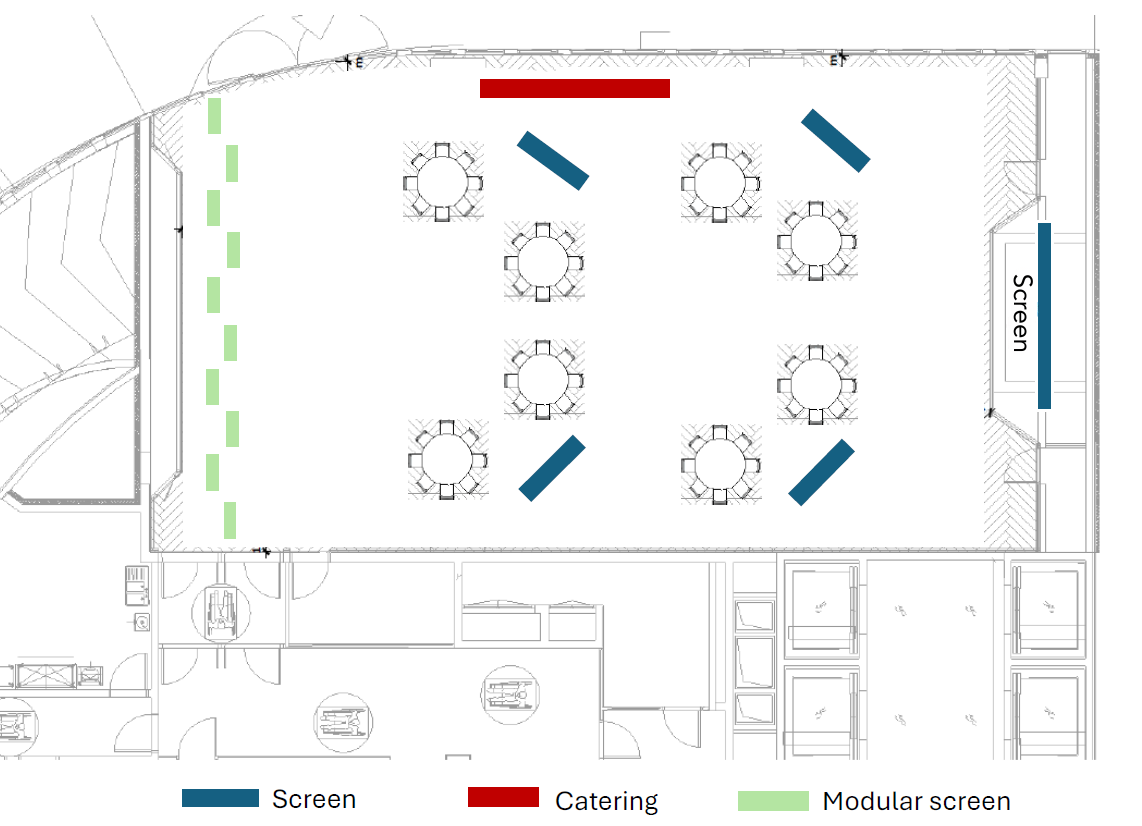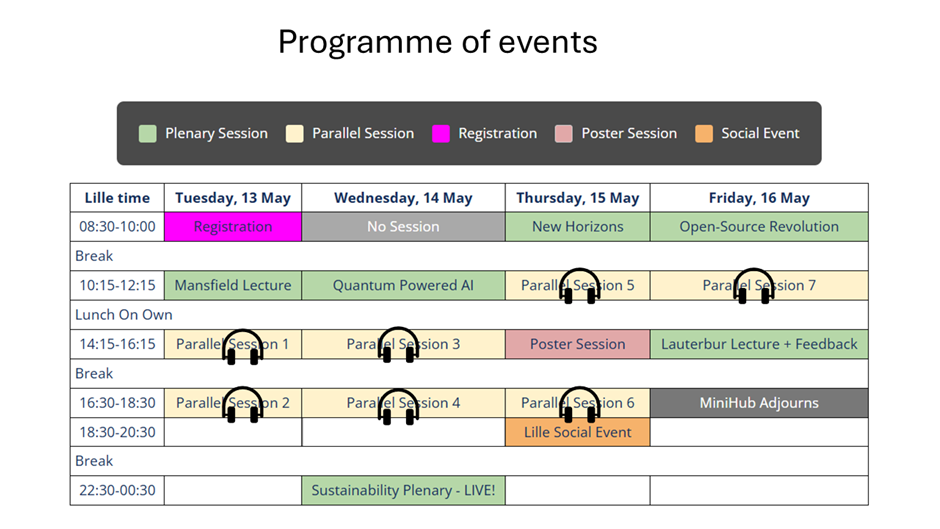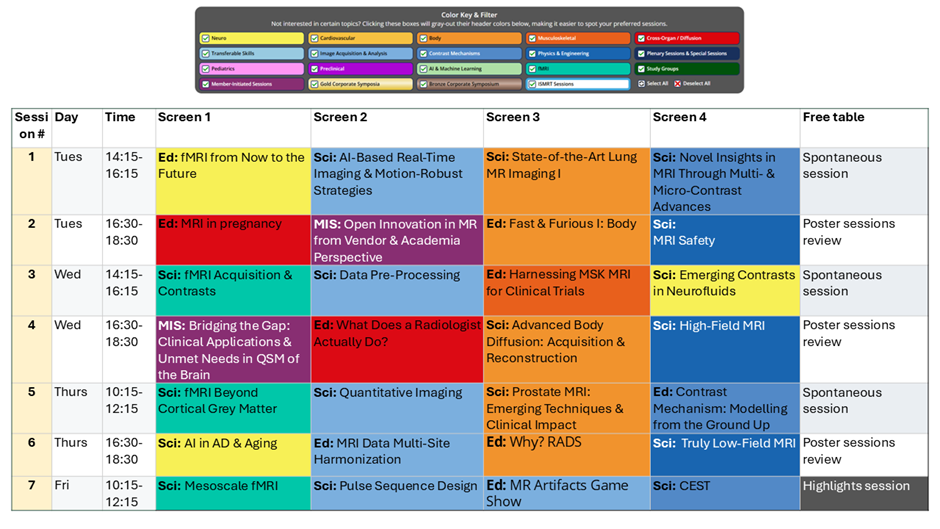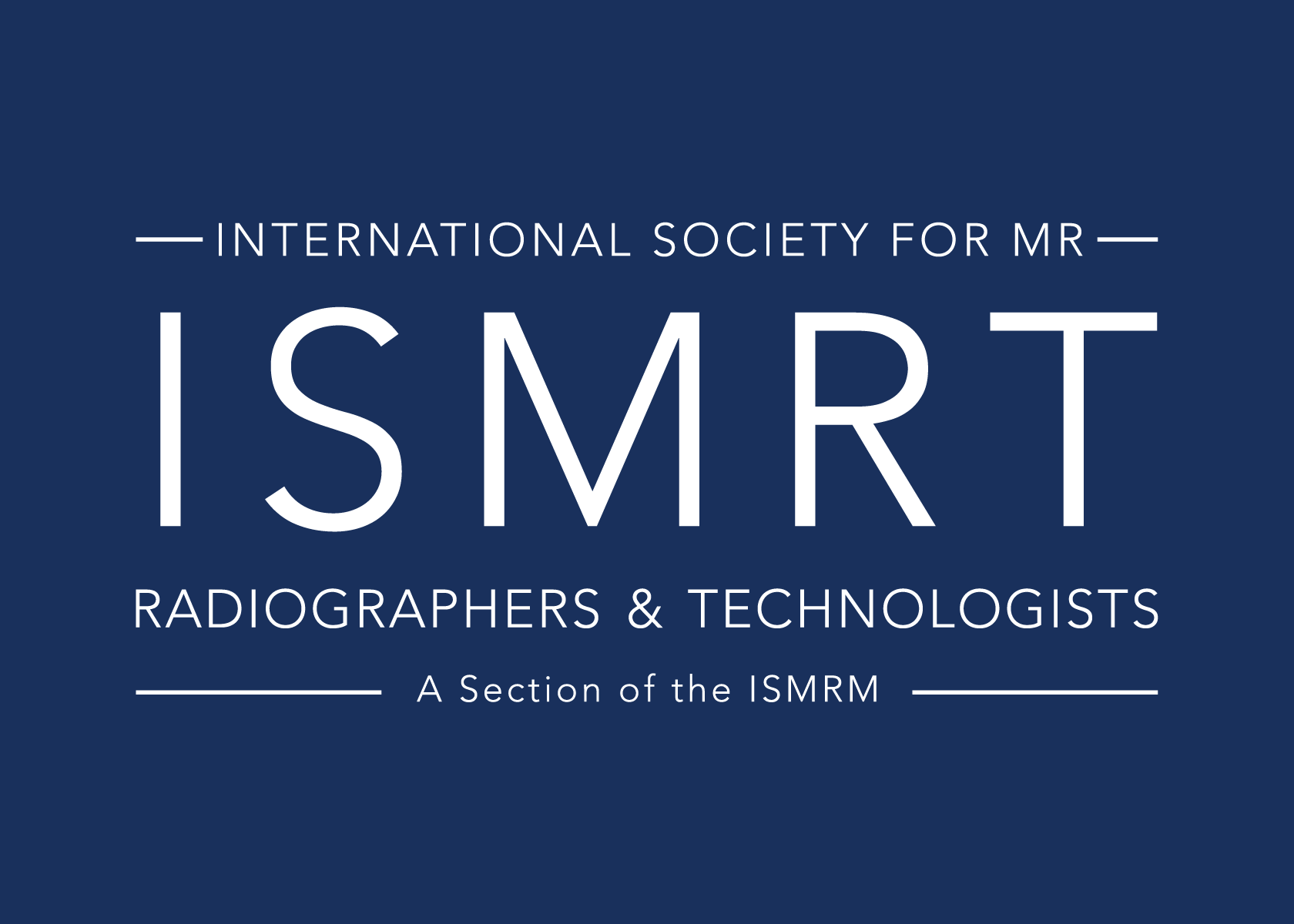Dear ISMRM Members,
We are pleased to announce the call for proposals to host an ISMRM MiniHub Conference (MHC) in 2026.
Last year was the first year that the ISMRM held a MHC in Lille, France and the response was very positive. The MiniHub program aims to enhance local engagement and foster collaboration, especially for members facing budget constraints, travel or accessibility restrictions, or visa limitations, by offering accessible, regionally based opportunities to connect, share research, and contribute to the Society’s mission.
What Are MiniHubs?
MiniHub Conferences are regionally organized events that complement the ISMRM Annual Meeting. They bring the ISMRM experience closer to members around the world through scientific sessions, networking opportunities, and community engagement — all based on the ISMRM Annual Meeting program. More details can be found on this page.
Why Host a MiniHub?
Hosting a MiniHub allows you to:
- Build and showcase your regional MR community.
- Facilitate inclusive access to ISMRM content and collaboration.
- Strengthen international connections and foster new partnerships.
- Gain visibility as a leader in advancing ISMRM’s mission.
Program Overview
- Up to five MiniHub locations will be selected globally for 2026.
- Each site is eligible for up to US$25,000 in reimbursable expenses.
- Proposals will be evaluated based on regional need, organizational capacity, accessibility, and community impact.
Key Dates
Application Deadline: 15 November 2025
Notification Date: 01 December 2025
Eligibility Highlights
To qualify, applicants must:
- Be current ISMRM members.
- Have a confirmed (tentatively reserved) venue and local organizing committee.
- Deliver content from the ISMRM 2026 Annual Meeting program.
- Ensure the MiniHub is open to all interested participants (up to 100 attendees).
We look forward to receiving your submissions and continuing to grow ISMRM’s global community through these regional hubs of innovation and collaboration.
Overview
The ISMRM MiniHub Conferences (MHC) provide regional complements to the Annual Meeting, designed to reach community members who face barriers to attending the main conference. For the 2026 Annual Meeting, up to five MHC locations will be selected globally through a competitive proposal process. Each location may receive up to US$25,000 in reimbursable expenses, with a strict five-location cap creating a total program budget of US$125,000. Based on the first MHC last year in Lille, France, this guide provides a comprehensive framework for organizing successful MHCs that foster scientific discussion, networking, and community engagement.
Selection & Budget Framework
Proposal Process
- Five MHC locations will be selected through competitive proposals submitted to the ISMRM Board.
- Each approved location is eligible for up to US$25,000 in reimbursement for qualified expenses.
- Total program budget: US$125,000 (five-location maximum).
- Selection criteria include regional need, organizational capacity, accessibility, and community impact potential.
- Proposals should demonstrate a clear understanding of the target audience and barriers addressed.
Reimbursement-Based Model
Expenses must be documented and submitted for reimbursement to ensure accountability.
Eligible Expenses
- Venue rental costs
- Audio-visual equipment
- Catering and hospitality
- Organizational/marketing materials (e.g., name badges)
Explicitly Excluded Expenses
- Attendee travel costs
- Faculty/mentor attendance costs
Qualification Standards
Rigorous qualification standards ensure professional execution and a high-quality attendee experience.
Mandatory Criteria (All Must Be Met):
- Organizers must be current ISMRM members
- Venue space must be identified.
- Local accommodation and dining are easily accessible.
- All content must be from the 2026 Annual Meeting program.
- All attendees (minimum 25, maximum 100) must register through the Central Office’s registration portal.
- Local organizing committee must confirm faculty participation with Central Office.
- Organizers will be required to participate in a pre-event meeting with ISMRM leadership to discuss the agenda, logistics, and best practices.
- The MHC must be able to serve more than just a single institution’s members. All MHCs must be open to anyone who wants to attend.
- If Industrial presence will be at the MHC, this must be coordinated with the Central Office.
- Within 60 days after the event, organizers should submit a report detailing attendance, session feedback, and overall outcomes to help improve future MiniHubs.
Registration & Revenue Model
Registration Fee Premium
- MHC registration fees will be set at the ISMRM virtual meeting cost plus US$100, reflecting the enhanced in-person experience while maintaining access to full conference content.
Application & Approval Process
- Streamlined application and review process with tight timelines to support effective marketing and registration.
- Application deadline: November 15 (allows sufficient review time and supports early 2026 planning).
- Notification date: December 1 (commitment to a 4–5 day turnaround for rapid decision communication and market launch).
Website & Content Management
- ISMRM will host a WordPress-based website management system to highlight all approved MHCs.
- Local organizers maintain content control and will have a template linked to the ISMRM page for updates.
- ISMRM retains hosting and oversight authority.
Primary Goals
- MiniHubs serve as regional points of entry for researchers outside the Society’s current reach.
- They provide accessible alternatives for members facing travel barriers.
- They foster high-quality scientific discussion and collaboration.
- They create inclusive environments for knowledge sharing.
Conclusion
The updated ISMRM MHC framework ensures accountability, upholds professional standards, and promotes financial sustainability while facilitating regional accessibility. Through clear criteria, streamlined processes, and shared responsibilities, MiniHubs will expand the Society’s reach and impact while maintaining a high-quality attendee experience.

 2025 Lille Post Minihub Write Up
2025 Lille Post Minihub Write Up


